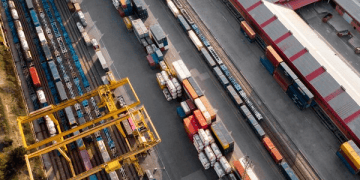Thailand is focused on expanding its network of free trade agreements (FTAs) in 2025, as part of its broader strategy to support economic recovery and growth. The country is set to sign the Thailand-European Free Trade Association (EFTA) FTA this month, marking its first such agreement with European nations.
Commerce Minister Pichai Naripthaphan shared that Thailand currently holds 15 FTAs with 18 countries and emphasized that completing the FTA with EFTA, which includes Switzerland, Norway, Iceland, and Liechtenstein, is a significant milestone. The EFTA region is known for its strong purchasing power and innovation, which could enhance trade and investment opportunities for Thailand.
The signing of the Thailand-EFTA agreement is scheduled to coincide with the World Economic Forum in Davos, Switzerland, from January 20-24, 2025. The Thai Prime Minister will attend the event as a witness to the signing ceremony. In addition to the EFTA agreement, Thailand is actively working to finalize negotiations with other key partners, including the European Union (EU), South Korea, ASEAN-Canada, and Bhutan, with the goal of concluding these agreements within the year.
Minister Pichai also highlighted that Thailand’s geographic position in Southeast Asia makes it an ideal trade and investment hub, with the potential to attract further foreign investment. He noted that the Thailand-EFTA agreement has already encouraged other regions, such as the EU and the United Arab Emirates, to expedite negotiations with Thailand.
The Thailand-Sri Lanka FTA is expected to take effect in the first quarter of 2025. Meanwhile, Thailand is progressing in its negotiations with South Korea under the Economic Partnership Agreement (EPA) framework, which aims to expand market access beyond the current ASEAN-Korea FTA and the Regional Comprehensive Economic Partnership (RCEP). The EPA will focus on areas such as digital trade and supply chain collaboration.
Thailand is also seeking greater market access for its high-quality agricultural exports, including tropical fruits like mangoes and mangosteens, as well as shrimp and chicken, in South Korea. Additionally, both countries are planning to revitalize the Joint Trade Committee (JTC), which has been dormant for over 20 years, to address trade and investment issues.
Negotiations with Bhutan are progressing with two rounds already completed, with the goal of finalizing the trade liberalization pact by 2025. Thailand is also engaged in discussions concerning an ASEAN-Canada FTA, which has made significant strides in areas such as trade services and customs facilitation, with the aim of concluding these negotiations this year.
In addition to new agreements, Thailand is looking to enhance existing FTAs, including those under the ASEAN Trade in Goods Agreement and its trade deals with India and Peru. The country is also exploring new economic partnerships, with a particular focus on future FTAs with the UK, following the signing of a memorandum of understanding in September 2024 to strengthen trade and investment relations.
Stay on top of supply chain logistics news updates at The Supply Chain Report. Visit ADAMftd.com for free international trade tools.
#GlobalTrade #FTAExpansion #ThailandTrade #EconomicGrowth #TradeAgreements















